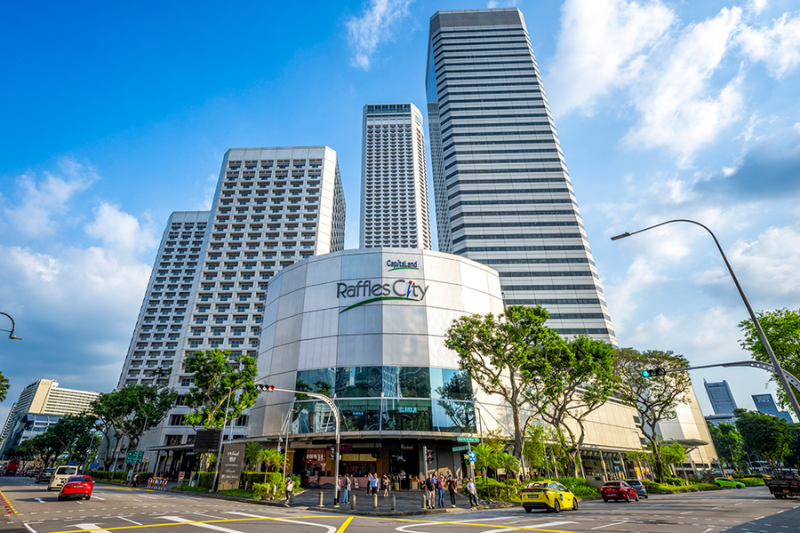What’s worse than losing money in the stock market?
Watching your purchasing power slowly evaporate while you think you’re winning.
With inflation eroding the value of money, dividend stocks that grow payouts faster than inflation can help preserve and grow purchasing power.
Singapore investors don’t need to settle for stagnant yields – some companies consistently raise dividends and deliver real returns above inflation.
Here are 4 Singapore dividend stocks that have proven they can outpace rising costs: Singapore Exchange (SGX: S68), Parkway Life REIT (SGX: C2PU), CapitaLand Integrated Commercial Trust (SGX: C38U), and Haw Par Corporation (SGX: H02).
Singapore Exchange (SGX: S68)
Singapore Exchange (SGX) is a multi-asset exchange that provides listing, trading, and clearing services for securities and derivatives, operating equity, fixed income, currency, and commodity markets.
SGX’s monopoly position in the Singapore financial market ensures that they possess recurring income, and higher trading volumes in volatile markets boost earnings.
SGX has a track record of steadily increasing its dividend payout to its shareholders.
Since FY2021, SGX has paid out a dividend per share of S$0.32 and has since increased to S$0.375 in FY2025.
This translates to a five-year compound annual growth rate (CAGR) of 4%.
The dividend payout ratio remained sustainable with the figure ranging from 60.8% to 76.9% across the same period.
The increasing dividend can be supported by the rising net profit for SGX.
In FY2025, SGX’s net profit grew by 8.4% year on year (YoY) from S$598 million to S$648 million.
Based on SGX’s share price of S$16.82, this translates to a dividend yield of 2.2%.
Parkway Life REIT (SGX: C2PU)
ParkwayLife REIT (PLife) focuses on a well-diversified portfolio of healthcare and nursing home properties across Singapore, Japan, Malaysia and France.
The REIT has delivered uninterrupted distribution per unit (DPU) growth since its 2007 listing, with DPU expanding from S$0.0632 at IPO to S$0.1492 in FY2024, a 136% increase.
One reason healthcare REITs are able to beat inflation is due to the nature of their long-term master leases that include rental escalation clauses tied to inflation, especially in Japan.
It allows the REIT to provide investors with predictable and growing distributions over the long term.
For YTD 3Q2025, PLife REIT reported a DPU of $0.1156 cents, up 2.3% YoY.
The portfolio’s weighted average lease expiry (WALE) stood at 14.68 years, providing significant visibility and stability to its distributable income.
Meanwhile, PLife REIT’s gearing ratio remained healthy at 35.8% and its weighted average debt to maturity stands at 3.2 years.
At the price of S$4.05, its dividend yield is 3.7%.
CapitaLand Integrated Commercial Trust (SGX: C38U)
CapitaLand Integrated Commercial Trust (CICT) is Singapore’s largest retail and commercial REIT.
The REIT’s portfolio consists of retail malls, office towers and integrated developments, with the majority of its exposure in Singapore.
With these characteristics, CICT is able to reprice their rents upward over time and hence the ability to sustain and raise distributions even during higher cost environments.
For CICT’s latest half yearly result, its portfolio occupancy rate stood at 96.3% and its retail and commercial occupancy rate stood at 98.6% and 94.6% respectively.
At the same time, its rental reversion figures for its retail and office portfolio stood at a positive figure of 7.7% and 4.8% respectively.
Across the longer period (FY2022 to FY2024), CICT’s DPU has shown both stability and growth. For FY2022, CICT’s DPU stood at $0.1058 and has since risen to $0.1088 in FY2024.
At S$2.32, CICT has a dividend yield of 4.8%.
Haw Par Corporation (SGX: H02)
Haw Par is a conglomerate with four key divisions – healthcare, leisure, property, and investments.
The healthcare division is well-known for selling its Tiger Balm brand of ointments and pain patches.
Haw Par, the owner of Tiger Balm, which is a low capex consumer brand and the strategic stakes in UOB and UOL allow the group to generate stable recurring dividend income for investors.
From FY2020 to FY2024, dividend per share has been on an uptrend – the company paid out S$0.30 in FY2020 and this rose to S$1.40 in FY2024 (including a special dividend of $1.00, without which, it would be $0.40).
Given the growing dividend over the years, Haw Par’s dividend payout ratio remains sustainable at between 38.8% and 60.2%.
In the latest financial year, close to 73% of the company’s earning contributions came from investments while the remaining 27% came from the healthcare, property and leisure segments.
Excluding the special dividend, Haw Par has a dividend yield of 2.6% at a share price of $15.49.
What This Means for Investors
With Singapore’s inflation projected at just 0.5% to 1.5% for 2025, these four dividend growers offer meaningful real returns above inflation.
As inflation eventually rises from current lows, these companies have proven business models that can sustain and grow distributions.
Dividend stocks that grow payouts faster than inflation protect investors’ purchasing power.
SGX, Parkway Life REIT, CICT, and Haw Par prove that income investing is a powerful hedge against rising costs.
Focusing on dividend growth, not just yield, is key to beating inflation over the long run.
Get Smart: Your Inflation Shield Starts Here
While inflation sits at multi-year lows in Singapore, the erosion of purchasing power never truly stops.
A dollar today won’t buy what it did five years ago, and it won’t buy as much five years from now.
That’s where dividend growers like SGX, Parkway Life REIT, CICT, and Haw Par become essential.
The secret to wealth-building is to own companies that make inflation irrelevant by growing distributions faster than prices rise.
That’s not market timing – that’s smart money at work.
How do rich Singaporeans invest when volatility hits?
They turn to companies with cash, history, and discipline. This free report highlights 5 blue chips that deserve your attention. Get your copy here and see who made the list.
Follow us on Facebook, Instagram and Telegram for the latest investing news and analyses!
Disclosure: Zheng Long does not own shares in any of the companies mentioned.





